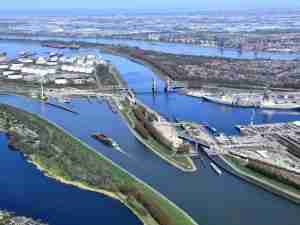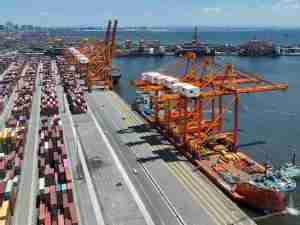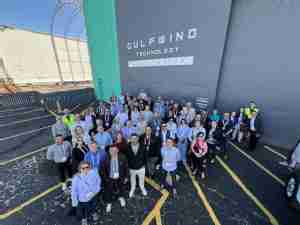"2010 was an important and successful year at Port Metro Vancouver, with unprecedented infrastructure investments underway, the implementation of a unique model of collaboration among transportation and port operations partners, and record setting volumes," said Robin Silvester, President and Chief Executive Officer, Port Metro Vancouver. "Port businesses have every reason to celebrate a hard-earned recovery that exceeded expectations."
The 2010 year-end report shows that container traffic set an all time record in total containers handled. Overall export volumes were further strengthened by record setting coal and grain volumes.
Total foreign tonnage increased 18 per cent, to 93.3 million tons, with increased foreign exports to growing Asian economies continuing to lead the way.
"As Canada's largest port, Port Metro Vancouver delivered results that show the Asia-Pacific Gateway strategy is working for the Canadian economy," said the Hon. Chuck Strahl, Minister of Transport, Infrastructure and Communities. "Exports to the Asia-Pacific markets continue to show great strength thanks to ongoing efforts of Port Metro Vancouver, terminal operators, the trucking and rail industries, and all levels of government."
Total domestic tonnage also increased, to 25.1 million tons, up 10 per cent over 2009.
"Congratulations to Port Metro Vancouver on its record breaking year," said Transportation and Infrastructure Minister Shirley Bond. "PMV's year-end results show the success of Canada's Pacific Gateway as the preferred gateway for trade between Asia, North America and the World. The Provincial and Federal governments as well as our private sector partners have committed $22 billion to Canada's Pacific Gateway infrastructure across the supply chain and the benefits include more trade and more jobs for British Columbians."
Signs of Growth: Key Sectors
- Auto volumes remained stable, shifting down slightly by one per cent to 381,609 units. The dip follows modest growth in the beginning of the year.
- Breakbulk is up 15 per cent overall to 16.8 million tonnes, with a rebound in demand for forest products as a key driver of growth.
- Bulk volumes were up 19 per cent, setting a record at 80.3 million tonnes as a result of sustained growth in Asian economies and strong demand for Canadian commodities like coal, grain and potash. In 2010, coal rose 25 per cent and grain rose eight per cent to record-setting levels.
- Container traffic at Port Metro Vancouver has set an all time record at 2.5 million TEUs*, up 17 per cent as demand for imported consumer goods continued and container exports returned to Asia with forest products and special crops.
*Twenty-foot equivalent unit containers
Port Metro Vancouver also made progress in other important areas, for example:
- Sustainability — Port Metro Vancouver emissions reduction programs received international acclaim, earning the Globe 2010 ecoFreight Award for Sustainable Transportation. The Port has also been credited for its Air Action Program, having been nominated for the International Sustainable Shipping Award. Port Metro Vancouver improved incentives for cleaner ships to call at the Port, and together with government and industry brought shore power to Canada Place with 44 shore power connections in 2010.
- Collaboration — Port Metro Vancouver's first Collaboration Agreement with CN has been a catalyst for CN's recent announcements of service agreements with terminal operators. A similar agreement is being negotiated with Canadian Pacific. These unique collaboration agreements focus on reciprocal accountability and have contributed to improved customer service in the Vancouver Gatewa









